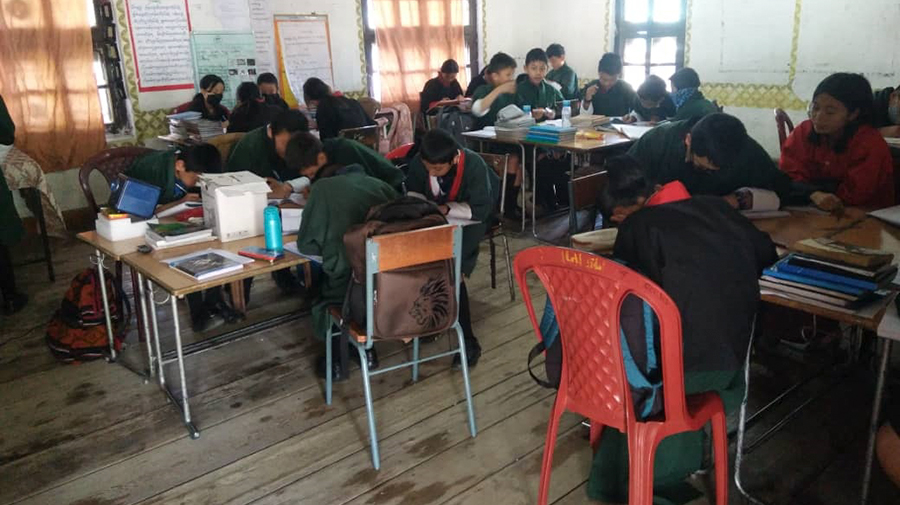
With the Ministry of Education and Skills Development reinstating board examinations for classes six and eight, parents of students with special needs are worried the decision has put undue pressure on their children. But the ministry says special arrangements have been made to accommodate SEN students to sit for board exams.
Although help is provided by the education and skills development ministry to ensure students with special needs appear for the board examination to get certificates, parents are doubtful the move will be of any benefit.
“We as parents feel that our children need not necessarily sit for board exams as they cannot compete with general students. Because of board exams, my child has started getting tense. Instead of board exams, if they could be assessed based on their class performances,” said Sonam Choden, a parent.
Meanwhile, the ministry has already developed a modified curriculum and marking scheme for students with special needs.
Students falling under the severe and moderate categories will not have to write board examinations. Only students in a mild category will have to sit the board examinations.
“Our school has 126 special educational needs students categorised into mild, moderate and severe. The functional curriculum is implemented for students in the moderate and severe categories. Whereas, mild category students follow the normal curriculum and have to attend the normal examination,” said Phurpa Dorji, SEN Coordinator of Changangkha MSS.
According to the Bhutan Council for Secondary Examination and Assessments, students with special needs have to attend board examinations to get their certificates.
“Students with special educational needs are being provided with equal education opportunities. SEN students attending board examinations are provided with facilities and accommodation accordingly,” said Pema Chhogyel, the deputy chief programme officer of MoESD.
Today, there are 39 inclusive schools in the country catering to special educational needs students, including two institutes with over 1,000 students.
Ugyen Dorji
Edited by Sherub Dorji








